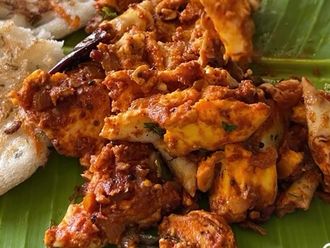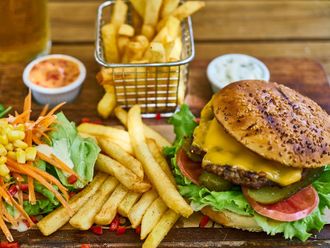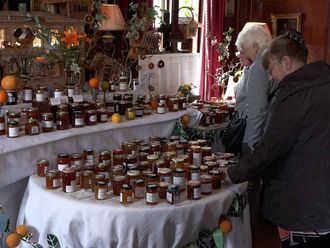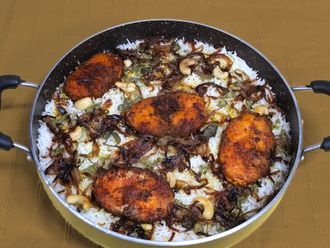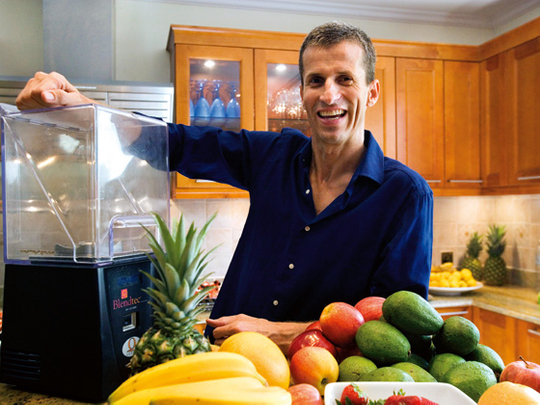
The debate on the health benefits of raw food versus cooked food is as old as the history of man. And the discovery of fire has only added fuel to the flames of this controversy. A raw food diet by definition means eating predominantly fruit, seeds, nuts and vegetables that are ripe, raw, unprocessed or organic. Dubai-based raw food supporter Malcolm Slyper elaborates, “We do not get into percentages of how much of your food intake should be raw. But the more the better. Consuming a higher amount of fruit or vegetables will move us away from chemically laden, nutritionally defunct, processed substances that detract from our overall health. The odd piece of bread, or the odd cup of coffee will not break the bank. Life is to be enjoyed, but we are the product of our choices.”
We approached Slyper to clear up a few possible misconceptions about raw food diets. Slyper, a pilot by profession, conducts raw-food workshops and detoxification programmes.
Slyper, 42, discovered raw food a few years ago during his search for solutions to health problems that seemed resistant to conventional medicine. He suffered from recurring digestive issues, candida, symptoms of fatigue and constipation, as well as frequent colds and flu.
“I intuitively realised that diet played a bigger role in my condition than what conventional medicine was letting on. Initially I dropped all meat, dairy and wheat from my diet. I had found the consumption of these substances to be worsening my situation. As a result, I noticed a small improvement in my condition. At this stage the most noticeable fact was that I no longer experienced a runny nose, or congested nasal passages upon waking up. Over time, frequent colds and flu became something of the past. Inspired by my progress, I continued reading voraciously on subjects of alternative health and diet. I would say the diet did not heal by itself but created conditions in my body conducive for the natural healing to take place. In late 2005, I switched to a full vegan diet [no animal products]. At this stage though I was still cooking my food, I knew there was more to discover.”
Fasting first
But before he made the complete switch to raw food, instinct and common sense told him to detox his body to be fully prepared to embark on a raw food diet.
“I knew I had to do two things – fasting and detoxification. I figured there was no point in putting good ingredients into an overloaded and polluted body.” The detoxifying fast produced dramatic health results. “Fasting as a mechanism has been recognised as the finest way to restore lost vitality even in ancient Greece and beyond,” he says. “This detox programme continued for many months at frequent intervals. “Over the years of careful trial and error, I have gained an education that has opened my eyes to how we have lost sight of the basic truths and common sense.”
It is not as though Slyper has renounced bread, rice, pasta forever. But his choices are largely raw as that is a lifestyle choice he has made. “Over the years, I have learnt what works best for my body. I avoid the foods that I know have a less than optimum affect on my body.
I have not eaten a steak in a long, long time. I also have no desire to eat a steak. Fresh fruit and veggies make up the majority of my meals. The simpler the better. I go to great lengths to avoid processed, lifeless foods.”
Slyper answers critics of the raw food diet:
Human beings are not geared to eat raw food
Science has enough evidence that human beings have been following a raw food diet for 99.9 per cent of the time that they have been on the planet. It’s only in the last 10,000 years, since the discovery of fire, that we have been cooking our food. All the illnesses we experience are predominantly born of our neglect of a natural diet in favour of a heavily processed one.
Raw food is not tasty
The idea of wilted lettuce and rock-hard carrots is the stuff of popular imagination. The truth is that most cooked food too would be bland and tasteless if not for the addition of spices. A raw food diet offers us the ultimate in pure flavour just as nature intended. There are thousands of textures and tastes in the world of raw food diets. When prepared the right way, using the right combinations, the taste of raw foods not only matches most cooked foods but also exceeds them in flavour and nutritional value in many ways.
People on a raw food diet suffer from deficiencies of essential amino acids and Vitamin B12
Our closest relatives in the animal kingdom, chimpanzees, have been shown to have 99.9% similar DNA structure to ours. They thrive on a plant-based diet. They grow to be rather large, and live very long lives. Outside of captivity, they show no signs of deficiency at all. This gives us a clue to what an optimum diet was before the advent of fire and the practice of cooking food. A balanced plant-based diet has all of the building blocks and amino acids the body needs to create the proteins required to rebuild and run its daily functions. Amino acids gained from a plant-based source are first-hand ingredients of the highest quality and available for immediate use by the body. Animal proteins on the other hand, have to be broken down into the simple amino acid strands and then re-assembled for use by the body – a much more complicated and energy intensive process. Thus animal protein is a second-hand source of protein and amino acids.
Raw foods can be dangerous
Any form of food preparation is vulnerable to a compromise in hygienic conditions. If due diligence, basic hygiene and common sense is applied to one’s food preparation, no ill effects will be experienced.
Raw food causes flatulence
A raw food diet is not the reason for bloating and gas. These two conditions are the result of incorrect foods and over-consumption, that leads to foods fermenting, and spoiling in an overloaded digestive tract. When a sensible detox protocol is pursued, and foods are properly combined into compatible groups and consumed as such, the bloating will go away. Bloating and gas could also be the result of an often entirely misunderstood parasite problem. In fact insoluble fibre, which can be found in raw food in vegetables, edible peels of fruits, nuts and seeds, promotes the growth of a certain friendly bacteria that ferments and makes the waste material soft and bulky, which in turn helps it to pass through the intestines quicker to the bowel and out of the body. On the other hand, processed foods have all fibre stripped away. A typical example of food devoid of fibre is ‘wholewheat fresh bread’. There is nothing whole or fresh about bread. The wheat has had all of its fibre stripped away before being processed into flour.
Raw food makes your mind dull and does not promise sensorial pleasures
It’s not the raw food diet but the period of transition during which your body, accustomed to heavy, overprocessed foods, is making its adjustments that causes you to slow down. After all, years of accumulated chemicals and toxins have to be flushed out from your body. A raw food diet on the contrary, in its essential job, results in a clear, alert mind, and many people even report heightened states of consciousness. The detox effect lasts until the body has adequately cleansed itself. But people blame their symptoms on raw food, not realising how they have been taxing their bodies all the while. Also, no two people are alike. So the effects of the detox vary from person to person. The extent depends on how much accumulation has built up over time in the person.



